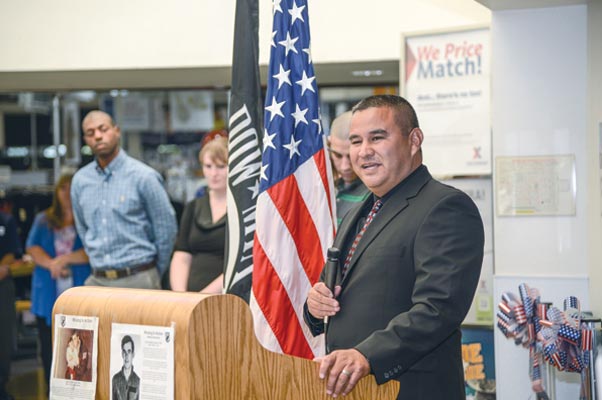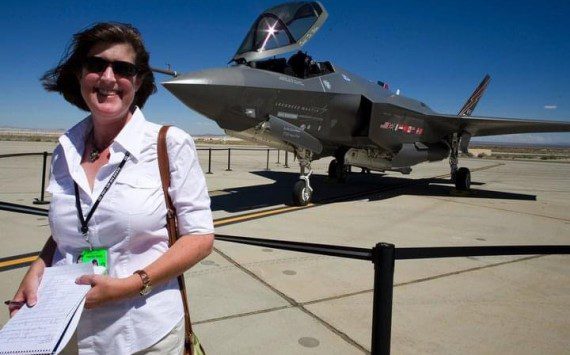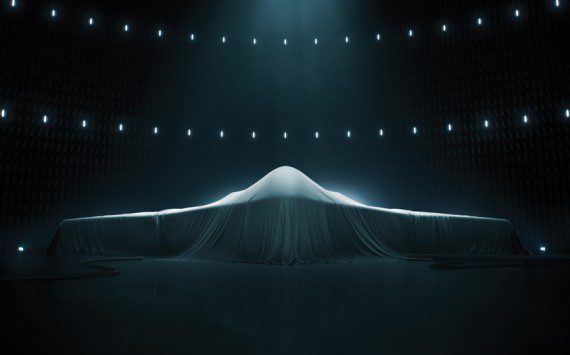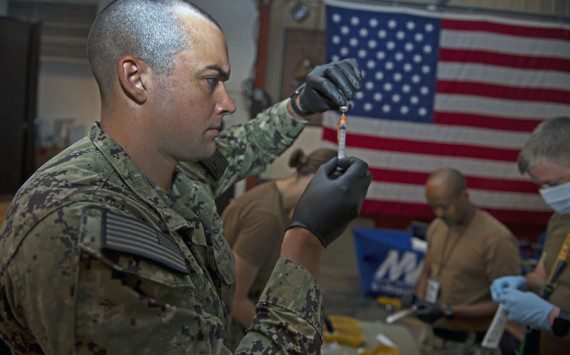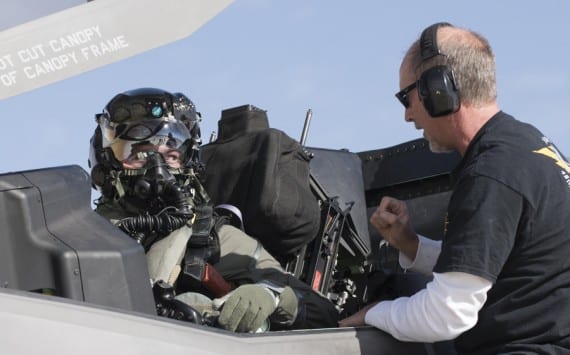A ceremony honoring service members who are prisoners of war or missing in action was held in the Base Exchange Sept. 18 for National POW/MIA Recognition Day.
The ceremony, hosted by the Air Force Sergeants Association, was attended by the American Legion and POW/MIA Patriot Guard.
Guest speaker Andrew Ramirez shared the story of the 32 worst days of his life, when he was held as a prisoner of war. Following his presentation, the Blue Eagles Honor Guard set a ceremonial table in remembrance of those who are prisoners of war and missing in action in all branches of the military. Master Sgt. Gerald Lockwood, 772nd Test and Evaluation Squadron, closed the ceremony by playing “America the Beautiful.”
Ramirez’s story began March 31, 1999, which started off as a beautiful day. Then, Army Staff Sgt. Ramirez, was deployed to the Macedonia-Serbia border in an observation post.
“We were the first line of alarm incase Serbians decided to invade Macedonia,” said Ramirez.
At that time, Ramirez said they were doing American bombing runs and missile strikes into the former Yugoslavian countries of Kosovo, Serbia, Albania and Montenegro. He recalls being sent to observe the border with “very little equipment” and very strict rules of engagement. To be better prepared, his troop was mapping out escape routes in case of an enemy invasion.
The next day, with Ramirez at the wheel, Spec. Steven Gonzales in the vehicle gunner spot and Staff Sgt. Christopher Stone as the guide, they drove the route to become familiar with it. What they did not know is that one small village on the route was setting up an ambush.
“When we first entered the village we had an eerie feeling. It was different than when we first went through it because nobody was outside of their homes,” recalled Ramirez about the normally bustling area.
An old man came out yelling, screaming and waving his arms. Though it spooked them at the time, they later realized the man may have been trying to warn them of the impending danger. Their up-armored Humvee started to take direct small arms fire, which sounded like rocks hitting the vehicle. As Ramirez tried to evade the attack, they turned into a full platoon of infantry that opened fire on them.
Stone tried to send their grid location, but only half was ever received. And since the engine was not up-armored at the time, their engine was disabled and they were stuck. Because of their rules of engagement, they were restricted from firing their weapons until fired upon; they were also outgunned.
“I lost control of the vehicle and crashed into a crowd of bushes and we sat helpless,” said Ramirez. “I thought long and hard about what happened next, especially as I sat in a prison cell all day for the next month, but I really can’t see where we could make any other decision.”
The Soldiers were removed from the vehicle, beaten, dragged through the village and placed in a stable behind a home. Then, they were searched, threatened, bound by zip ties and threatened some more.
The next thing Ramirez remembers is an eerie quiet and being placed on his knees side-by-side with his troop mates.
“All I could think about was watching one of my friends to the left or right of me being executed because I was in the middle,” he said. “Luckily, I did not have to die with that image in my mind.”
The Soldiers were taken across the border; they were given medical attention and interrogated. Eventually, they were presented to a group of media and his family and friends first learned of his capture.
“That time for me is quite blurry. It sort of runs together because for 10 days they kept us bound and hooded and on the floor,” he said. “We were moved three times, interrogated numerous times and asked things way above our pay grade.”
At the end of that 10 days, they were taken to a prison where they were fed twice a day and given lots of time to think. At night, Ramirez would listen to air raid sirens and bombs hitting nearby buildings and wondered if he would die in an explosion in that very prison.
At one point, he was able to speak with a Red Cross representative who brought messages from home. Twice he saw Rev. Jesse Jackson Sr., and his religious delegation. On their 32nd day of captivity they were released to Jackson and returned to Germany.
“It was the most surreal thing. To go from nothing, to all of the people, all of the attention, they were very happy to see us; but that was very overwhelming.”
And that was only 32 days, Ramirez concluded. Many prisoners of war spend months or years in captivity and some never return home.
“None of us can ever recapture the past, we can only learn from it, remember it, move on.”
Today, Ramirez is a sixth grade teacher at Yucca Elementary School in Palmdale, Calif. He is thankful that his military service provided him with an ability to provide his students with an example of determination and self discipline.
“I hope that I can make a difference in their lives and that each and every one of my students learns something from me. I hope I can be one small spark that helps ignite the interest of life-long learning in these children. I hope even more so, that my service to this great country makes my family proud.”
Ramirez was joined at the ceremony by his wife, Debra.
Observances of National POW/MIA Recognition Day are held across the country on military installations, ships at sea, state capitols, schools and veterans’ facilities. It is traditionally observed on the third Friday in September each year. This observance is one of six days throughout the year that Congress has mandated the flying of the National League of Families’ POW/MIA flag. The others are Armed Forces Day, Memorial Day, Flag Day, Independence Day and Veterans Day.






